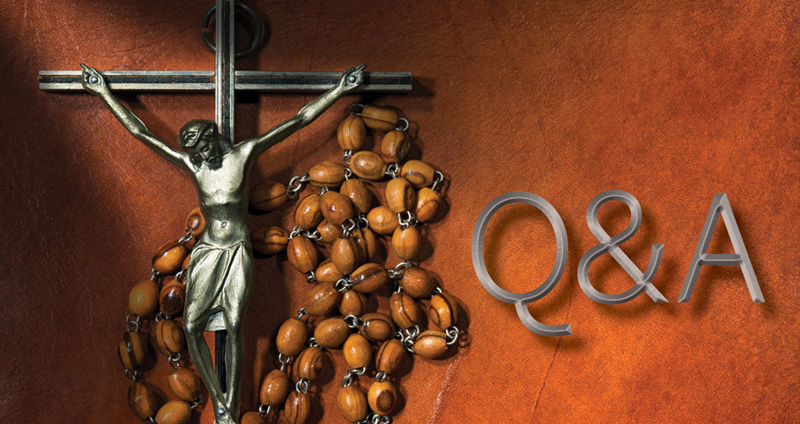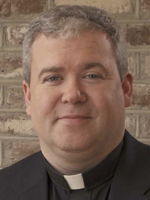
Q: Why is it that the Church will forgive someone who has had an abortion but will not forgive someone who is divorced and remarried? I think abortion is a horrific act. How can people who have had an abortion receive holy Communion but not those in happy second marriages? (Rock Hill, SC)
A: There are a few things in this question that need to be clarified. First, marriage is a sacred gift given by God to the human family. The Church has been entrusted with this gift. She takes this divine inheritance very seriously and sees marriage as a means of grace and the source of the Christian family. It lies at the very heart of the Church’s identity and mission (Eph 5:21-33). Secondly, God’s mercy is for the repentant and is available at all times. The Church readily makes this mercy and its consolation available to all members of the faithful who desire to confess their sins and make a firm resolution of amendment.
That last part is the difference between someone who has an abortion, or has been an accomplice in it, and the person who is divorced and remarried. In the first case, there was a sinful action committed in the past. It is not a progressive action, meaning it is not on-going. It’s an action and not an enduring way of life. Someone could repent of it because it’s over. And when someone receives this mercy, such a person could, and should, receive holy Communion.
By contrast, someone who is divorced and remarried is living in a sinful state of life. According to the teachings of the Lord Jesus, the presumed marriage is an on-going state of adultery (Lk 16:18). Because the irregular marriage is progressive, it cannot be repented of since the person is still in the midst of the sinful way of life.
Unless a person is ready to confess the sinfulness of the second marriage, separate from their presumed spouse (or live as “brother and sister” for the sake of any children), they cannot sincerely receive the mercy that God offers to all. By extension, therefore, they cannot receive holy Communion (1 Cor 11:27).
Incidentally, I’m surprised by how many people who are divorced and remarried have never even attempted an annulment. For some, when it’s mentioned, they roll their eyes as if the annulment is somehow insignificant or not worth their time. This response could indicate a lack of understanding of the Gospel teaching on the sacredness and indissolubility of marriage. It could also indicate a disregard for the authority and responsibility of the Church to uphold marriage and, when necessary, to discern and decide whether a marriage is valid, namely, whether the sacrament was confected by the spouses. But the Church has this authority and can perform this ministry and is willing to do so for the sake of the believer’s right relationship with God.
I would strongly encourage anyone who is divorced and remarried to pursue the annulment process through their local parish. This is the normative path that can open the way to both a valid marriage and the worthy reception of holy Communion.
Q: My wife and I sometimes attend daily Mass and then a funeral or a vigil Mass for Sunday. How many times can we receive Holy Communion in one day? (Little River, SC)
A: The norm is to receive holy Communion only once a day. However, it can be received twice in one day so long as the second Mass is attended in its entirety.
Father Jeffrey Kirby is administrator of Our Lady of Grace Church in Lancaster. Email him your questions at askfrkirby@gmail.com.


